American Fiction (2023): a brave and necessary statement | un pronunciamiento valiente y necesario
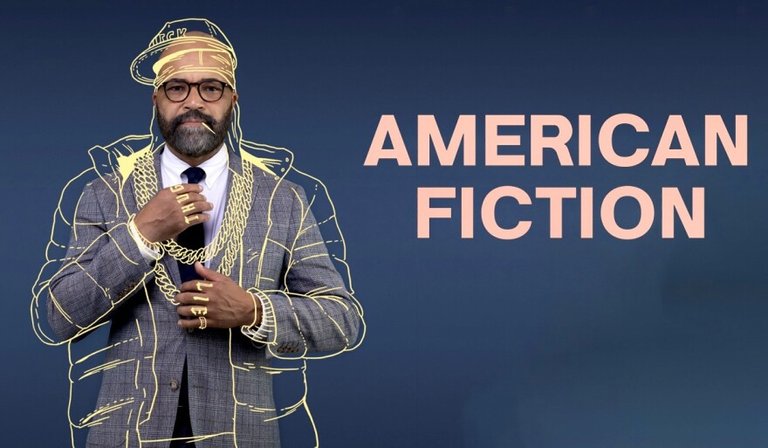
Nominada a cinco premios de la academia
Of all the films nominated for the main category of the next Oscars - Best Picture - I have already seen six, but among those that I have yet to see there are a couple that I didn't know anything about until they published the list of nominees. One of them is The Zone of Interest, which I plan to see soon in the cinema and the other is this film, American Fiction, written and directed by Cord Jefferson and starring Jeffrey Wright.
De todas las películas nominadas a la categoría principal de los próximos premios Oscar - la de Mejor Película - ya he visto seis, pero de entre las que me falta ver hay un par de las que no sabía nada hasta que publicaron la lista de nominados. Una de ellas es The Zone of Interest, que pienso ver proximamente en el cine y la otra es esta película, American Fiction, escrita y dirigida por Cord Jefferson y protagonizada por Jeffrey Wright.
The story begins with English teacher Thelonious Ellison (nicknamed Monk for obvious reasons) who begins to be questioned for his teaching methods and some statements made in the classroom. Monk believes that this generation of young people he teaches is too sensitive and takes offense very quickly, which - in his opinion - harms the debate on controversial but necessary topics. It's not that Monk is provocative, it's that it seems that now you can't talk about anything that matters without offending anyone. With this introduction I felt immediate sympathy for the character of Monk, because I think something similar about the current times, and I was interested in a film that seemed to openly question something that many avoid mentioning. However, I could not imagine - since I had not seen any promotional trailer for the film - to what extent American Fiction is a criticism of the mental reality of an entire country. It turns out that in addition to being a teacher, Monk is also a writer. He published a couple of very good books before, but he hasn't published anything in nine years because his latest manuscript doesn't interest publishers. They consider it too intellectual (you have to make an effort to understand it) and not black enough. In short, Monk is falling victim to stereotypes: what he writes does not correspond to what he should write, to what people would expect from someone like him: an African-American writer.
La historia inicia con el profesor de inglés Thelonious Ellison (apodado Monk por obvias razones) quien comienza a ser cuestionado por sus métodos de enseñanza y algunas declaraciones hechas en el salón de clases. Monk cree que esta generación de jóvenes a quienes enseña es demasiado sensible y se ofende muy rápido, lo que - en su opinión - perjudica el debate de temas polémicos, pero necesarios. No es que Monk sea provocador, es que pareciera ser que ahora no se puede hablar de nada que importe sin ofender a nadie. Ya con esta introducción sentí inmediata simpatía por el personaje de Monk, porque pienso algo parecido respecto a los tiempos que corren, y me interesó una película que parecía cuestionar abiertamente algo que muchos evitan mencionar. Sin embargo, no podía imaginar - pues no había visto ningún avance promocional de la cinta - hasta qué punto American Fiction es una crítica a la realidad mental de todo un país. Resulta que además de profesor, Monk también es escritor. Publicó un par libros muy buenos antes, pero hace nueve años que no publica nada porque su último manuscrito no interesa a las editoriales. Lo consideran demasiado intelectual (hay que esforzarse para entenderlo) y no lo suficientemente negro. En pocas palabras, Monk está siendo víctima de los estereotipos: lo que él escribe no se correponde con lo que debería escribir, a lo que la gente esperaría de alguien como él: un escritor afroamericano.

Monk is tired of the stereotypes present in the stories of his people. Slavery, low-income communities, crime, drugs, fragmented families, rappers, domestic violence, use of inappropriate language, speech with little diction... always the same story, always the same characters, gang members, absent parents, who have filled pages and screens for decades. It's not that the writer denies that reality, but he's convinced that the black community in the United States is so much more than that. Limiting themselves to the same old labels reduces them to their usual role: that of victims of society, of circumstances, of destiny.
Monk está cansado de los estereotipos presentes en las historias de su gente. Esclavitud, comunidades de escasos recursos, delincuencia, drogas, familias fragmentadas, raperos, violencia doméstica, uso de un lenguaje inapropiado, un habla con poca dicción... siempre la misma historia, siempre los mismos personajes, pandilleros, padres ausentes, que han llenado las páginas y las pantallas durante décadas. No es que el escritor niegue esa realidad, pero está convencido de que la comunidad negra en los Estados Unidos es mucho más que eso. Limitarse a las mismas etiquetas de siempre los reduce al papel de siempre: el de víctimas de la sociedad, de las circunstancias, del destino.
And yes, Monk is right, but that doesn't mean others see or understand it. That's why the latest publishing success of the summer is a black novel written by a young black writer that feeds all those topics consumed by a mostly white society. Trapped in the middle of a rather complicated economic and family situation (which I don't advance much, but which gives a lot of body to the personal history of the characters), Monk decides to protest against editorial standards, do they not accept his latest book because it's not black enough? Okay, Monk is going to rub the stupidity of that argument in their faces by delivering the kind of product they expect to receive. He then decides to write, under a pseudonym, a book like so many others that already exist, a novel in which all the clichés of black stories that have tired him, but that society consumes with fervor are present, a very black novel. Monk hopes that upon receiving the manuscript, the publishers will realize how absurd what they are asking is, he makes a satire of society, the publishing market and his own community that seems to feel comfortable and proud of exploiting these worn-out clichés, but to his surprise, the manuscript is accepted and received as a true masterpiece. The ridiculous thing he just wrote is celebrated as the greatest literary achievement of recent times and even before being published there is already talk of hundreds of thousands of copies sold and an adaptation to the big screen, how is that possible?
Y sí, Monk tiene razón, pero eso no significa que los demás lo vean o lo entiendan. Por eso el último éxito editorial del verano es una novela negra escrita por una joven escritora negra que alimenta todos esos tópicos que consume una sociedad mayoritariamente blanca. Atrapado en medio de una situación económica y familiar bastante complicada (que no adelanto mucho, pero que le da mucho cuerpo a la historia personal de los personajes), Monk decide protestar contra los estándares editoriales, ¿no aceptan su último libro porque no es lo suficientemente negro? De acuerdo, Monk les va a restregar en la cara la estupidez de ese argumento entregándoles el tipo de producto que ellos esperan recibir. Decide entonces escribir, bajo seudónimo, un libro como tantos otros que ya existen, una novela en la que estén presentes todos los clichés de las historias de negros que lo tienen cansado, pero que la sociedad consume con fervor, una novela negrísima. Monk espera que al recibir el manuscrito, las editoriales se den cuenta de lo absurdo que es lo que piden, hace una sátira a la sociedad, al mercado editorial y a su propia comunidad que parece sentirse cómoda y orgullosa de explotar esos tópicos gastados, pero para su sorpresa, el manuscrito es aceptado y recibido como una verdadera obra maestra. La ridiculez que acaba de escribir es celebrada como el mayor logro literario de los últimos tiempos e incluso antes de publicarse ya se habla de cientos de miles de copias vendidas y de una adaptación a la gran pantalla, ¿cómo es posible?

American Fiction is a dramatic comedy, loaded with satire and necessary social criticism that points in several directions. Although its plot revolves around black American society, several of its questions can be applied to other contexts. The film addresses the issue of racism, homosexuality, the publishing market, stereotypes, but above all freedom of expression, thought and creative freedom, the fight against typecasting, labels and prejudices. Art, artistic creation, must be free, not responding to a market but to the desire for expression of the artist who wants to transmit the message that his soul imposes on him. The script for the film was written by the director himself based on the novel Erasure by Percival Everett, published in 2001, the direction is very good, as are the performances (especially those of Jeffrey Right and Sterling K. Brown) and although the academy has sometimes been criticized for nominating some black stories solely for reasons of inclusion (ironic, right?) the nominations received by American Fiction are not a product of chance or the academy's intention to include a black film just because. This story has a lot of merit, it's a very good film and if any of its main ideas make you uncomfortable in any way, it's time for you to review your prejudices. I know it's not the most popular among the nominees, but have any of you seen it? what did you think? I read you in the comments.
American Fiction es una comedia dramática, cargada de sátira y de una necesaria crítica social que apunta en varias direcciones. Aunque su trama gira en torno a la sociedad negra estadounidense, varios de sus cuestionamientos se pueden aplicar a otros contextos. La película toca el tema del racismo, la homosexualidad, el mercado editorial, los estereotipos, pero sobre todo la libertad de expresión, de pensamiento y la libertad creativa, la lucha contra el encasillamiento, las etiquetas y los prejuicios. El arte, la creación artística, debe ser libre, no responder a un mercado sino al deseo de expresión del artista quien quiere transmitir el mensaje que su alma le impone. El guión de la cinta fue escrito por el propio director a partir de la novela Erasure de Percival Everett, publicada en 2001, la dirección es muy buena, las actuaciones también (sobre todo las de Jeffrey Right y Sterling K. Brown) y aunque a veces se ha criticado a la academia por nominar algunas historias de negros solamente por un tema de inclusión (irónico, ¿cierto?) las nominaciones recibidas por American Fiction no son producto del azar ni de la intención de la academia de inlcuir una película de negros sólo porque sí. Esta historia tiene mucho mérito, es una muy buena película y si alguna de sus ideas principales te incomoda de alguna forma es hora de que revises tus prejuicios. Sé que no es la más popular entre las nominadas, pero ¿alguno de ustedes la ha visto? ¿qué les pareció? Los leo en los comentarios.
Reviewed by | Reseñado por @cristiancaicedo
Other posts that may interest you | Otros posts que pueden interesarte:
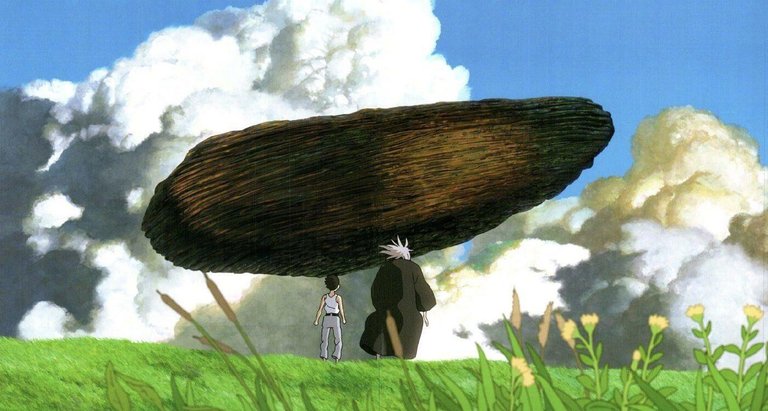 |
|---|
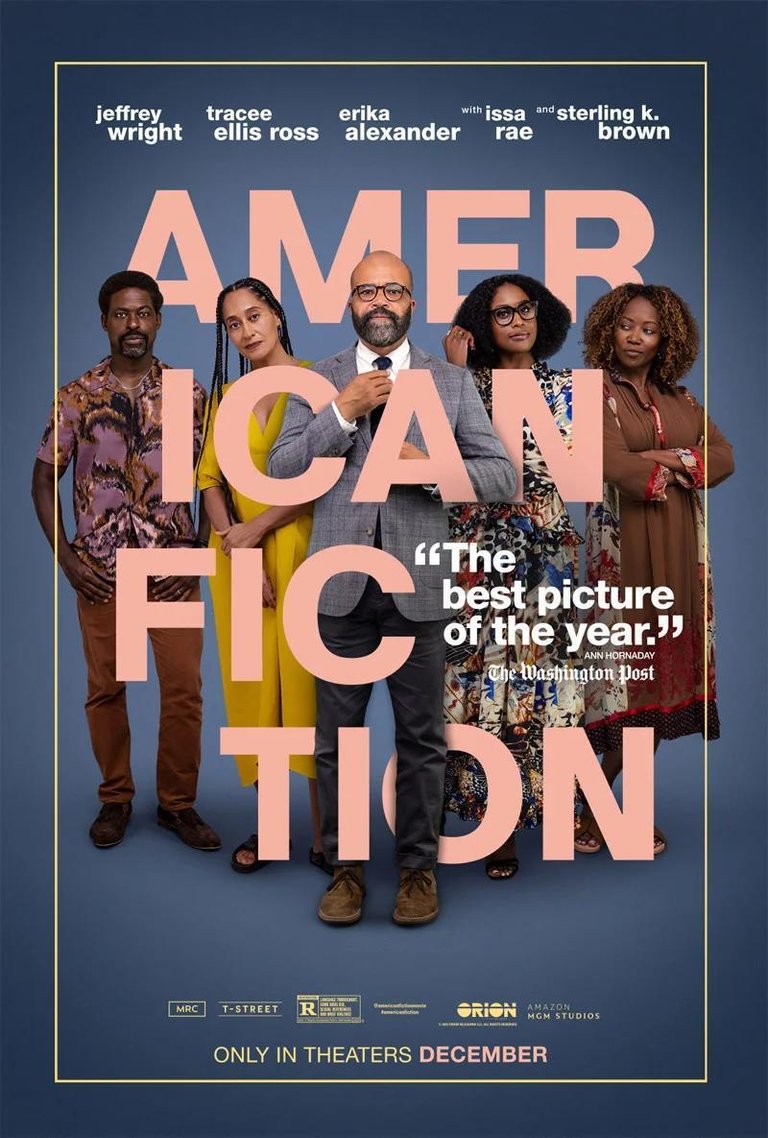
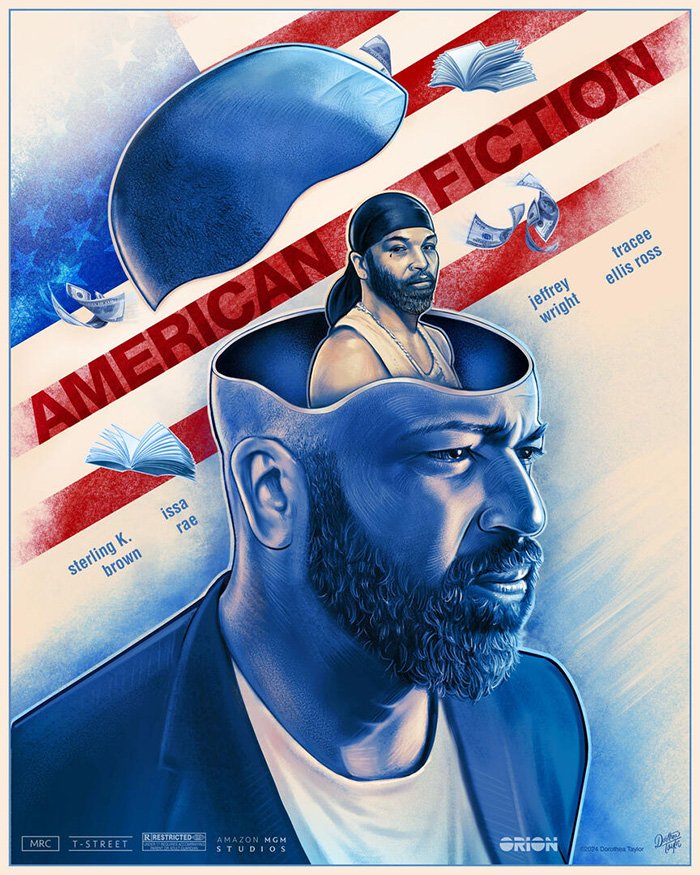
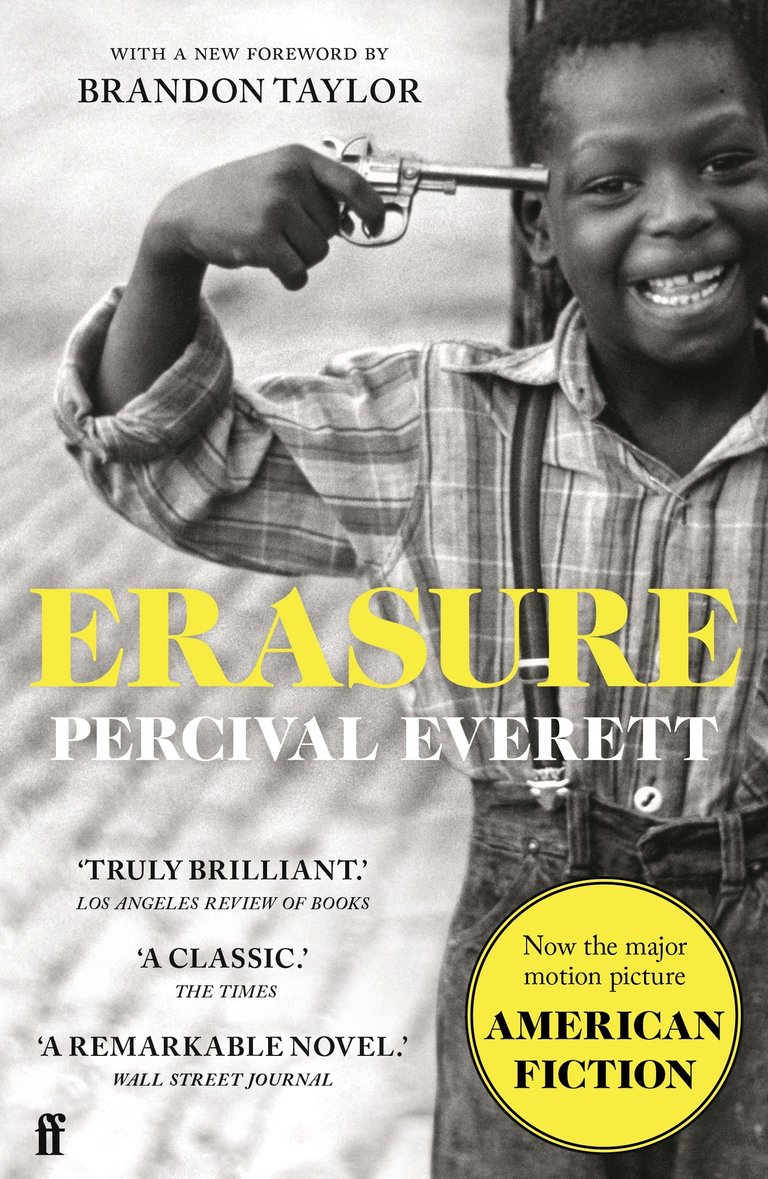
I finished watching this about an hour ago. It was so good. It's really refreshing to see a story pointing out the hypocrisy of the world of entertainment media. And the fragility of modern politics and society as a result.
It's bold and brave but also necessary. And yes, it was a great movie indeed. Thank you for reading.